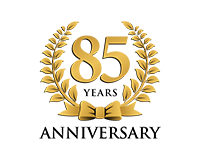Honours (Higher) Diploma on
Computers & IT Administration
This contemporary Programme will help you to become a competent, knowledgeable and confident person with the ability to guide, direct and lead colleagues in the workplace, and to monitor and control computer and IT systems and networks.
This Programme covers two of the most important elements of success in the modern business world. Firstly, this programme introduces and teaches key matters concerning computers and IT, and the management and control of computer systems and IT networks; this includes how to “project manage” computer systems from their specification, design and implementation, through to their safety, security and on-going maintenance and support. Secondly, the programme deals with managing the workplace, whether it is an office, a department or a company or business. It covers important and advanced matters concerning management, leadership, teamwork, motivation, change and strategy.
ALSO:
(1) Anybody enrolling for this Programme before 31st December 2024 will also be enrolled FREE for a Course on Strategy, Quality & Contemporary Business Concerns; the only requirement is that you provide your personal email address to the College on enrolment.
(2) During the “Covid-19” (Corona) virus pandemic and in lock-down periods, affected Members may be allowed to take Assignments (home-based course work) instead of or in addition to sitting Examinations to complete the Programme; details can be provided on request after enrolment onto the Programme.
- Summary of major topics
- What is included
- Related courses
- Study & Career development
The Programme comprises of four core ‘courses’; they are all compulsory/mandatory courses of study:-
- Computers & IT in Business & Management
- Office Management & Administration
- IT Systems Security & Administration
- Advanced Management & Administration Theory & Practice
Summarised details of each course comprising the Honours Diploma:
COMPUTERS & IT IN BUSINESS & MANAGEMENT
- Computers & technology in business; aids to management and administration; a decision-making tool.
- Computer characteristics, advantages, limitations; human factors. IT development, mass technology.
- Digital information, computer hardware, the CPU, interfacing, memory, bootstrapping, storage.
- Input and output devices; understanding the technology, how it works; data orthogonality, programming.
- Operating systems, programming tools, computer languages, codes, applications. Information flows, security, location.
- Understanding digital information, hardware systems and software operations.
- Using software: forecasts, modelling, graphs, analysis; competitor and market analysis. Understanding and using business intelligence.
- Communication devices, protocols, networks, internet, IPs, URLs.
- Practical uses of computer systems: property, hotels, insurance, retail, production, sales, accounting and communications, forecasting, planning.
- Digital and print media technologies. Website design.
- Objectives of computerisation. Choosing and implementing a computer system; testing, introduction, functionality; efficient running, business continuity, back-up, disaster recovery, cyber-attack, security.
OFFICE MANAGEMENT & ADMINISTRATION
- The functions of the office; the duties and responsibilities of managers/administrators; the wide and varied range of activities of office and workplace managers.
- Organisational structures, spans of control, hierarchies, organisation charts.
- The technical and the human aspects of management; business and company objectives and policies.
- Office locations, centralised and decentralised offices; the layout, design and environmental features of workplaces: heating/cooling, lighting, ventilation, cloakrooms; furniture, furnishings, decor.
- Health and safety responsibilities, accident prevention, noise reduction, the work environment.
- Office machines and equipment, computer systems, networks, databases: managing and maintaining security security and control.
- Electronic communications, email, word processing, desk top publishing, manual and computerised filing systems.
- Personnel: recruiting staff and employees; how and why job analysis and preparing employee specifications is undertaken; interviewing applicants.
- Inducting and training new employees; motivating, supervising, controlling, grading, ranking, remunerating and counselling for workplace employees and staff.
- Trade unions; aims, benefits, issues; O & M studies; employee development, promotion.
- Communication: preparation, telecommunications, incoming and outgoing mail, meetings, agendas, minutes, conferences. The reception, receptionists.
- Business forms, documents, design, codes; business letters, memoranda, reports: features.
- Financial matters, principles of accounting: cashiering, bank accounts, budgets, budgetary control.
- Computerisation: needs analysis, specification; data security.
IT SYSTEMS SECURITY & ADMINISTRATION
- Defining the security problem, adapting to change; security analysis, the security mindset, security goals.
- Security as a systems problem, thinking like the enemy, threat models and risks, classes of attackers.
- Technologies, antivirus software and updates, firewalls, intrusion prevention and detection systems.
- Cryptography and vpns, key distribution, transport encryption, object encryption, protocol, algorithms.
- Passwords, authentication, storing passwords, compromised passwords, biometrics, tokens, sign-on. Public key infrastructures (PKI), certificates, trust. Cryptographic weakness.
- Wireless access, connection, smart phones, tablets. Clouds and virtualization, distribution, sandboxes, security architecture, cloud computing and storage.
- Building secure systems, coding, design issues, external links, legacy systems, security evaluations.
- Selecting software, quality problems, keeping software up to date, patches.
- Employees: training, education, users; social engineering; the human element.
- System administration, security resources, tools and infrastructure, outsourcing system administration.
- Security process, planning, policies, reporting, incident response. New devices, threats and defences.
ADVANCED STUDY OF THEORY & PRACTICE OF MANAGEMENT & ADMINISTRATION
- The evolution of management theory, principles of management: the classical and early theorists; Fayol, Weber, Taylor, Mayo, scientific management, authority, discipline, modern developments.
- Organisational theory: objectives, categories, ownership, environmental factors and interaction.
- Open and closed systems theory. Communication theory.
- Coordination, cooperation, structure, control. Organisational structures, planning, growth and development, organization charts, systems diagrams.
- Duties and responsibilities of executives, delegation, responsibility. Mission, vision, values, MBWA.
- Motivational theory: human relations, social psychology; self-realisation, motivation-hygiene, expectancy theory; Argyis, Maslow, McGregor, Likert, Herzberg, Vroom, Handy; intrinsic and extrinsic factors.
- Leadership theory: traits, style, contingency; theorists.
- Building workgroups, group behaviour, norms, cohesiveness.
- Managing change, culture, Moss Kanter, learning organizations, entrepreneurship.
- Strategic management; Fayol, Chandler, Andrews, Ansoff, BCG, Porter, SWOT, barriers to entry, industrial competitiveness.
- Corporate objectives, policies, business ethics, social responsibilities.
WHAT IS INCLUDED IN THE FEE FOR THIS HONOURS GROUP DIPLOMA PROGRAMME
Your CIC Fee includes:-
- Your enrolment/registration with Cambridge International College, and your own high-quality, professionally produced and illustrated comprehensive International CIC Core Study Publications for each of the four (4) ‘courses’ of study.
- CIC’s detailed, professional ‘Study & Training Guide’ with full instructions on how to study to achieve success and gain top results. The Guide includes detailed advice on how to answer Tests and Examinations.
- Training Tests, Questions and Exercises (which can be used as ‘Past Papers/Questions’), and Recommended Answers for most of them.
- An Examination set for each of the 4 core courses; each Examination is sat under Invigilation/Supervision in your own area - full details, guidance and explanation of how your Examinations will be arranged and how Invigilation is conducted will be provided when you register. Note, CIC arranges Examinations in over a hundred countries worldwide for thousands of Members every year; it is a flexible, straightforward process and will be arranged when YOU are ready to write your Examination.
- A prestigious Cambridge International College Diploma on successful completion of Study & Training and on passing the Examination for EACH of the 4 core courses, PLUS the International Honours Group Diploma when all 4 courses have been completed - this is a total of 5 awards - 4 individual Diplomas plus the Honours Diploma.
- Your personal page on CIC’s Member Services website with access to results, despatch details, advice and guidance, and more: www.cambridgeinternationalcollege.co.uk
- Regular information and news including: Newsletters with details of special offers and new Programs and much more; and Competition Forms; by email and post.
- Everything needed for your Study & Training success is included in the CIC Fee.
Additionally:
- Further Study and Training Advice, and Assistance is available before, during and after CIC Study & Training; Members may ask CIC’s team of experienced Consultants for advice on further study and Programmes to improve career prospects and advancement.
- CIC’s experienced and helpful staff can assist with numerous special requests, such as reference/recommendation letters and transcripts, and more, by post and email.
- Computers & IT in Business & Management Diploma 12 months (flexible)
- Business Development Honours (Higher) Diploma 21 months (flexible)
- Management & Administration (EBA) EBA: Executive Business Administration 3 years (flexible)
- Project Management & Administration EBA: Executive Business Administration 3 years (flexible)
- Organisational Management (EMBA) EMBA: Executive Mastery of Business Administration 3 years (flexible)
The future is a “blank canvas” full of opportunity for a person well-trained, knowledgeable and competent in aspects of management, administration and leadership, and with key and important knowledge and understanding of managing and efficiently operating computer & IT systems and networks. These skills are vital in ALL businesses, firms and organisations, whether privately owned, publicly/nationally owned, or run for any variety of purposes. This Programme therefore presents and opens up huge range of varied, rewarding and interesting job opportunities. Career advancement to senior and higher managerial positions all follow on naturally with this excellent Honours Group Diploma award.
Access to higher studies in almost any field, and of course in management, administration, business, computers & IT is evident, including to CIC’s Baccalaureate and Executive Business Administration programmes, and to graduate degree level studies, and other studies with CIC and other institutions worldwide.
There is a wide range of options for further study - see the "Related Courses" section for suggestions - which include other Honours Diplomas, ABA & Baccalaureate Programmes, and the 'Double Award' EBA & BBA Bachelor degree Programme. You are welcome to ask the College for advice, and of course you can see details of these Programmes on this website.

Sign up to this course
Payment Options:
Duration & Assessments
The standard Study Period is 21 to 24 months, but this is flexible; the course can be completed in a shorter period, or longer if required.
READ MORE »To gain your Honours Diploma you need to sit and pass a written Examination/Assessment on each of the 4 Subjects in your Honours Diploma ‘group’. Full and clear details about this are provided to you, including in your personal Study & Training Guide, after you have enrolled. The clear information explains when, where and how your Examination/Assessment will be arranged - it is a simple and straightforward process, which hundreds of thousands of other Members have successfully gone through. If you study well and follow the advice in the CIC Study & Training Guide, then you should be able to achieve your prestigious Honours Diploma in good time!
(See the “WHAT IS INCLUDED” section for this Course, and/or the “FAQs - Frequently Asked Questions” section of this website, if you would like more information.)
Result
Four (4) Diplomas AND the Honours Diploma, certifying you have high levels of knowledge and expertise in management, computers & IT and administration.

